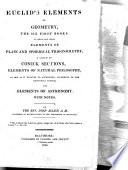 | Rev. John Allen - Astronomy - 1822 - 508 pages
...inertise, or vis insita of matter, is the power of resisting, by which every body, as much as is in it, perseveres in its state of rest, or of uniform motion in a right line. This force is proportional to the quantity of matter. This force consists in the action alone,... | |
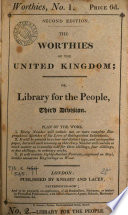 | Library - 1827 - 712 pages
...laws of motion, which are the foundation of the Newtonian system are these three: — 1. Every body perseveres, in its state of rest, or of uniform motion in a right line, unless compelled, by some force impressed upon it, to change its state. 2. The change of motion... | |
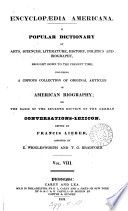 | Encyclopaedia Americana - 1831 - 610 pages
...comprehensiveness suits them to our purpose, and they are here quoted in the language of Newton. I. " Every body perseveres in its state of rest, or of uniform motion in a right line, unless it is compelled to change that state by forces impressed thereon." This is called the... | |
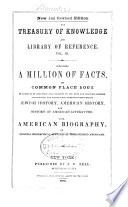 | Samuel Maunder - 1855 - 766 pages
...is contained in his Principia, or Mathematical Principles of Natural Philosophy. 1st law. Every body perseveres in its state of rest, or of uniform motion in a right line, unless it is compelled to change that state by forces impressed upon it. 2d law. The alteration... | |
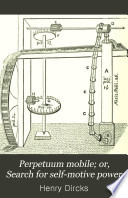 | Henry Dircks - 1861 - 644 pages
...treating of the Laws of Motion, and their general Corollaries, says : — 1. The first law of motion is, " That a body always perseveres in its state of rest, or of uniform motion in a right line, till by some external influence it be made to change its state." That a body of itself perseveres... | |
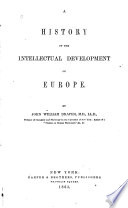 | John William Draper - Europe - 1863 - 656 pages
...motion. taree laws of motion. They are to the following effect, as given by Newton : (1.) Every body perseveres in its state of rest or of uniform motion in a right line unless it is compelled to change that state by forces impressed thereon. (2.) The alteration of... | |
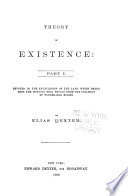 | Elias Dexter - Force and energy - 1869 - 184 pages
...change the state of that other." This definition explains what Newton means by saying that every body perseveres in its state of rest, or of uniform motion in a right line. He means : 1 . That when a body is in a state of rest, it will continue in that state until some... | |
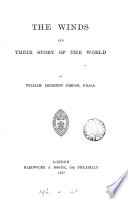 | William Leighton Jordan - Bimetallism - 1877 - 124 pages
...from the first of the Newtonian " Axioms ; or, Laws of Motion," which is as follows : — " Every body perseveres in its state of rest, or of uniform motion in a right line, unless it is compelled to change that state by forces impressed thereon. " Projectiles persevere... | |
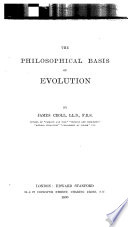 | James Croll - Evolution - 1890 - 224 pages
...an example, a case which may help to illustrate this difference, the First Law of Motion ; viz., " A body always perseveres in its state of rest, or of uniform motion in a right line, till by some external influence it is made to change its state." This law follows as a necessary... | |
| |